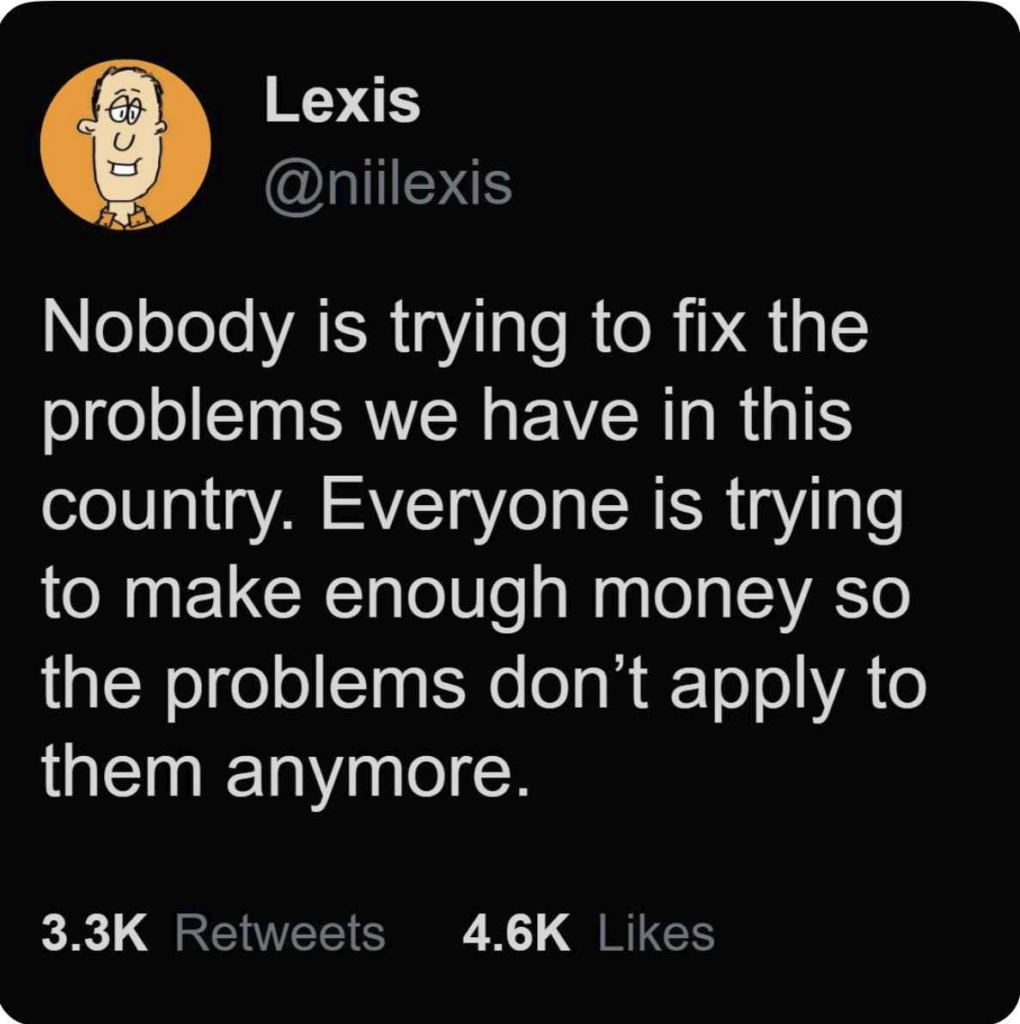(This column is posted at www.StevenSavage.com, Steve’s Tumblr, and Pillowfort. Find out more at my newsletter, and all my social media at my linktr.ee)
I saw this reddit post making the round, and I felt it. Kindly allow me less of a rant about leadership and projects and creativity to some feelings. Ok there WILL be some Project Management.

There are many things wrong in the world, and I pretty much rant on a lot of them (then usually mention Project Management). But I FELT this post hard. There’s lots of grifts and scams in America today, but there’s not nearly enough effort into fixing things.
I grew up in a place that still had depression era public works. I currently work in medical technology which is about solving problems as otherwise people die. It’s hard to imagine not solving problems, but then again that’s kind of the problem.
I think a lot of people just can’t imagine a better world and the way to get there.
In Project Management terms, we don’t have a charter to deliver or a plan to get there because we can’t dream it up. We are surrounded by wonders of technology and architecture, of history and providence, but we are impoverished in imagination. We can’t see a way forward and maybe not even a place to go.
Sure our media sells us “good” futures in the form of endless Star Trek series and assorted other stories – but these are also marketed to us, to appeal. The media will also sell us bad futures about dystopias and apocalypses, but those are also marketed. What’s not there is a road to the good future or a road out of or to avoid the bad future. We’re sold images without much solidity because it’s all about selling.
It’s all Product.
Our politics is the same way – and caught in the same loop. I dug up some satire from the early 80s and I’m seeing the same things being mocked four decades ago. We’re still doing the same bigotries and suicidal ideas and still satirizing them. It’s just like media, but let’s be honest, politics became theater decades ago as well, and everyone’s still repeating the bullshit. Real, big dreams seem to not be there, just the same nightmares and empty promises.
So what escape do you have? Well our media soaked culture will sell you grifts and personalities, so why not try to be like them? Invest in Crypto, become an influencer, whatever some rich figure currently bragging on your monitor is doing. We can’t imagine a better future, but folks can sell you the image of a richer you.
Being richer is the one thing you’re still able to imagine. Which is hilarious considering the small likelihood we will be rich.
I think we get caught in repetitive cultural cycles due to our media-political culture. T Here’s nothing to imagine, it’s all the same, and there’s just the promise of grift. It’s just we’ve gotten to the point where it’s hard to imagine hard-nosed, hands-on work to improve the world because it’s all images. It’s Society of the Spectacle, but the Spectacle includes people online screaming about mood-altering chemicals sprayed during wildfires that occurred due to global warming.
And of course me, the Project Manager, is constantly screaming inside just like all my fellows. What are the goals? The plan? Come on people!
Even though I can imagine a better future and a way to get there, it can be frustrating. So let me close by sharing a few things that helped me.
- I’ve been just reading more. This leads to thinking. What I do watch more and more of modern nonfiction are specialists, experienced people, and indie creators and news.
- I’ve been reading older texts on philosophy and history, seeing the world differently. It helps you imagine – and helps you see what’s been the same for centuries or aeons.
- Getting hands-on locally with disaster prep. Just taking a CERT course was an incredible eye-opener to how the world works. Studying disaster prep made me appreciate work in California that goes back over a century in flood prevention.
- Actual activism of any kind. Donate. Phone call. Do the disaster prep I mentioned. Get involved in anything that gets results. It’ll help you imagine what you want and how to get there.
- Read up on other cultures and times. There’s a wealth of knowledge of how people have lived and imagined over the years. Even if some things seem out of date or antiquated, there’s plenty of insight. Seeing how people lived differently helps you imagine living differently.
- Select your media. I’m not saying avoid trash – just know when you select your junk food. Trust me, I can’t judge, a friend has got me watching TWO Isekai deconstruction comedies.
- Work with people. Talking to others can get you out of your imagination bubble.
- WORK to imagine better. Write it down. Do a story. Let yourself practice dreaming.
No one is going to sell us a better future or a way forward. We have to make it together.
Steven Savage
